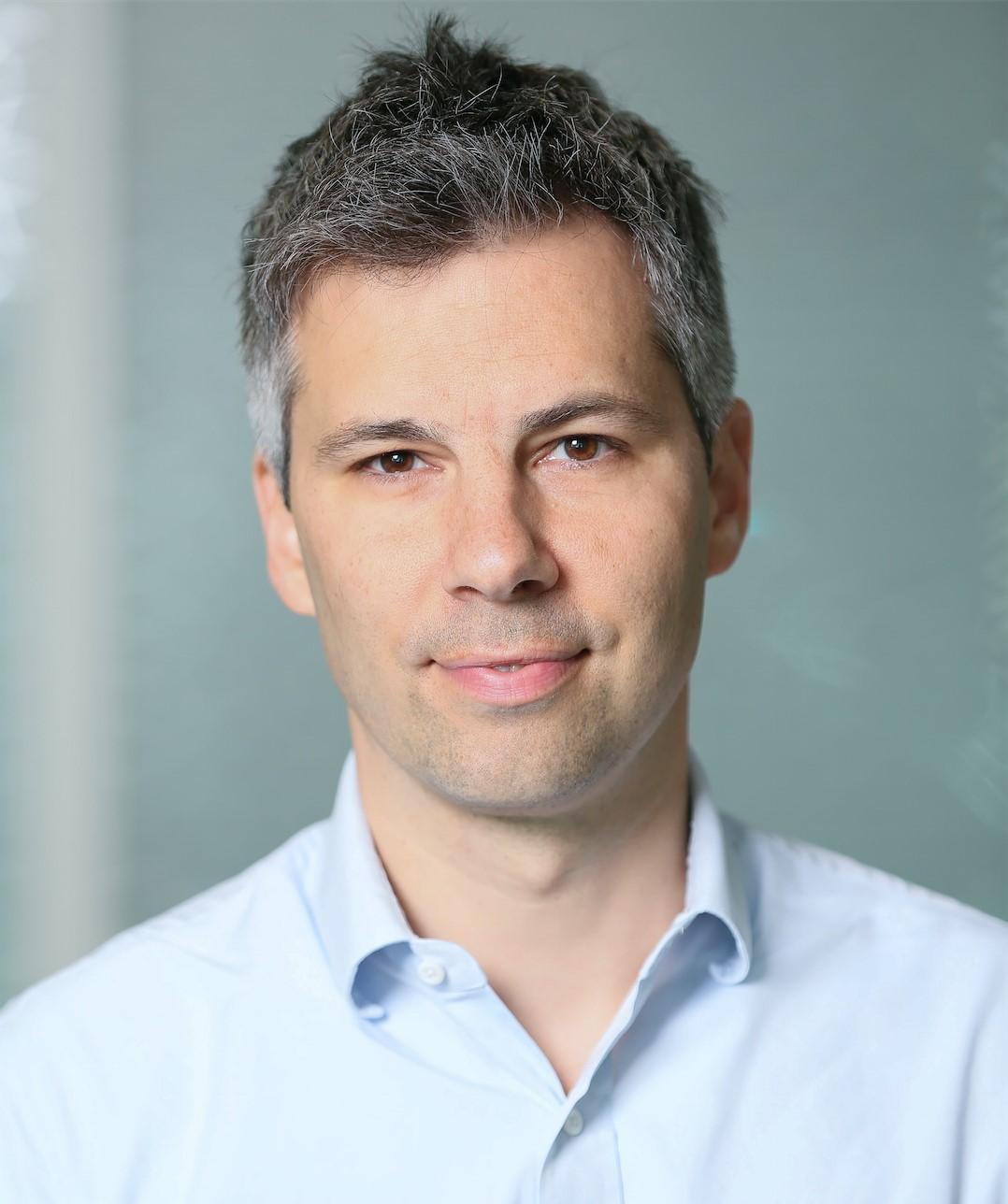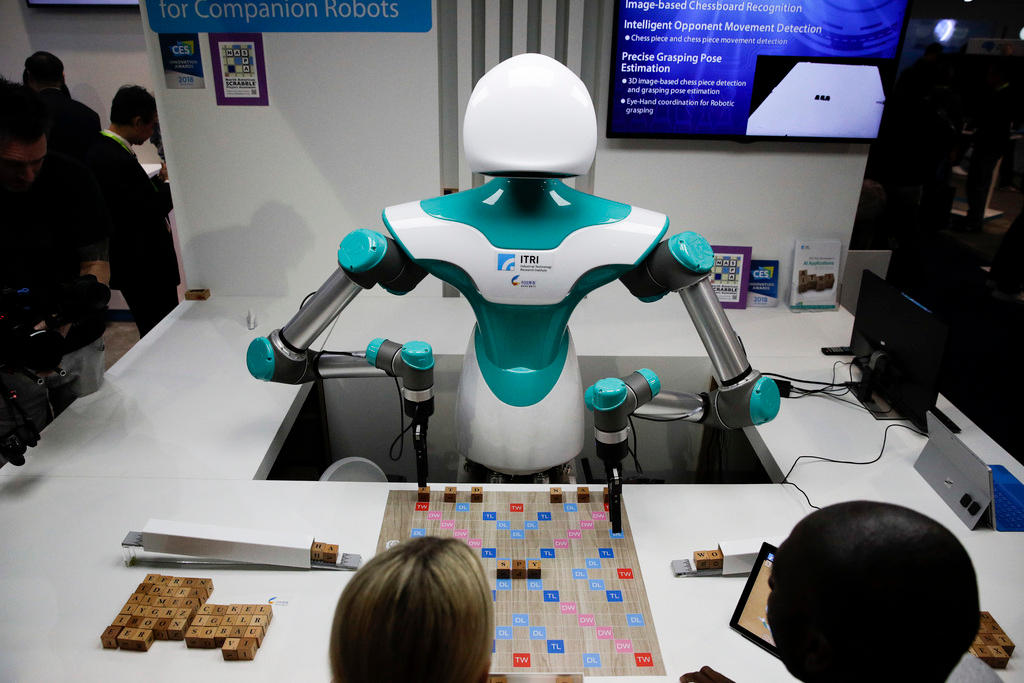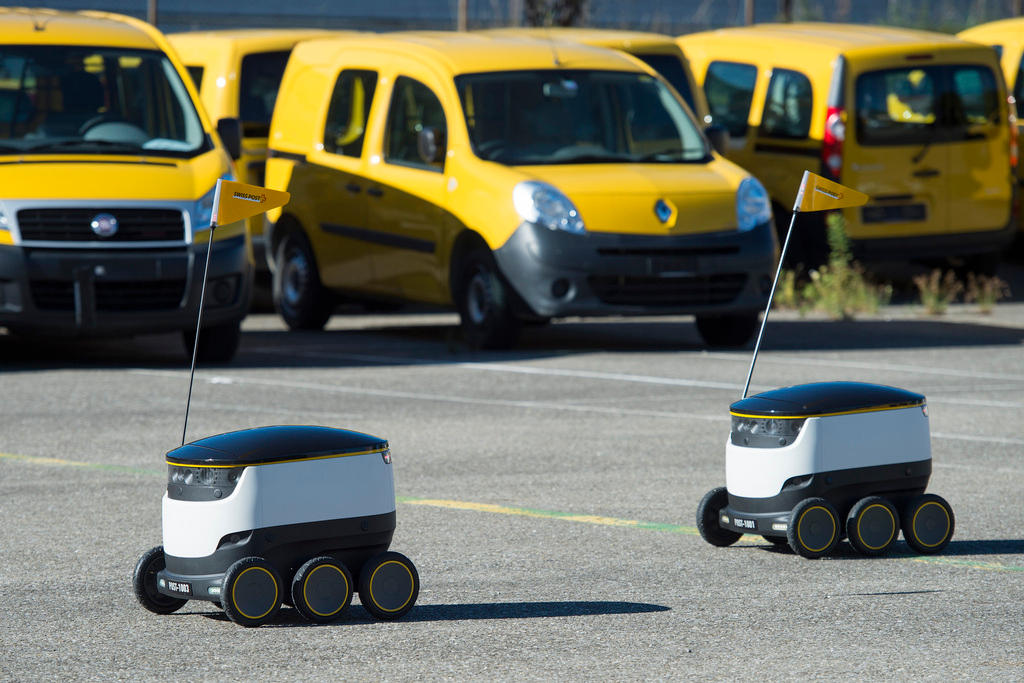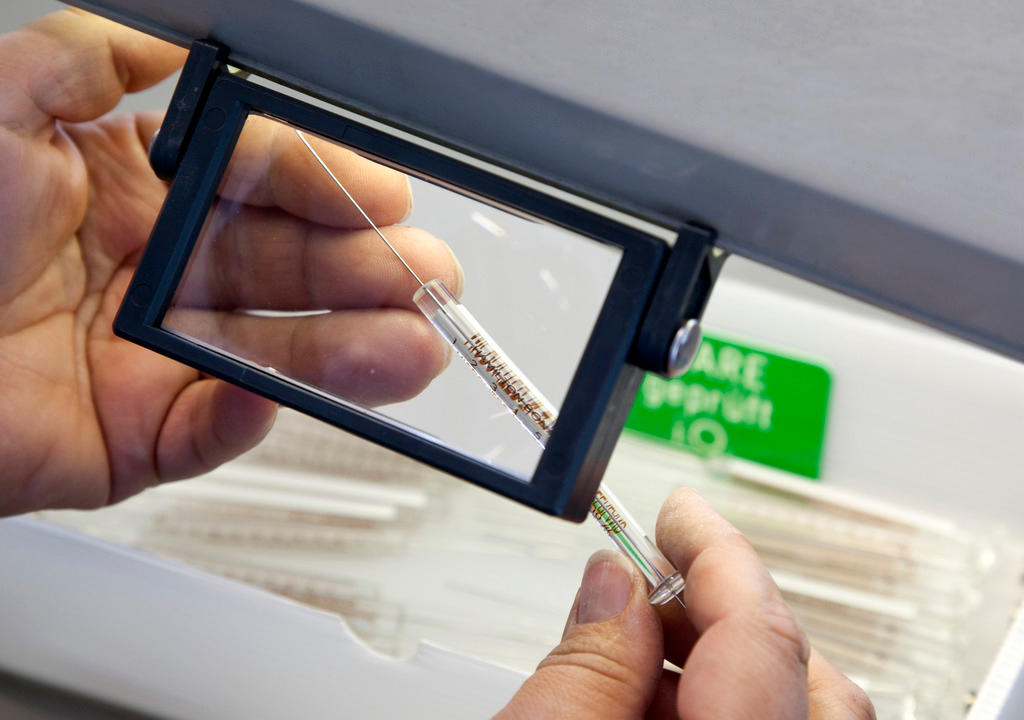AI has ‘enormous’ potential to transform health sector

Big data and artificial intelligence (AI) are a “force for good” which could transform the health sector, say experts gathered in Geneva at the 2nd AI for Good Global SummitExternal link.
Tedros Adhanom Ghebreyesus, director general of the World Health Organization (WHO), is convinced the technology can help advance the issue of universal health coverage.
“Artificial intelligence can greatly improve our response to disease outbreaks through enhanced early warning, forecasting epidemics, improved decision-making for outbreak response and simulation tools,” he told delegatesExternal link at the opening of the conference in Geneva.
“There are clear opportunities to use AI to make health services both more accessible and more effective. By making data collection and triage more efficient, AI can reduce the costs of care, making services more affordable for patients,” he added.
Artificial intelligence plays a key role for health. Using #AIforGoodExternal link is already improving people's health by helping paraplegic patients get improved mobility, making diagnosis faster, increasing road safety, forecasting outbreaks and more. pic.twitter.com/8umcgdGZHnExternal link
— Tedros Adhanom Ghebreyesus (@DrTedros) May 15, 2018External link
Marcel SalathéExternal link, the head of the Digital Epidemiology Laboratory at Lausanne’s Federal Institute of Technology (EPFL), is leading the summit’s health groupExternal link. He believes that AI and healthcare are a “natural match” and that the potential for AI-assisted health decision-making is “enormous”.
In many countries, healthcare is the largest or fastest growing industry, with health expenditure often topping 10% of gross domestic product (GDP), while AI has reached a new level of maturity, he noted.
“You have software that can take medical decisions, such as diagnosis, almost as well as a human doctor. That means you can copy the software millions of times and deploy it among the millions of smartphones around the world,” he told swissinfo.ch.

Advocates say human-built algorithms could help frontline health workers equipped with smartphones make early diagnosis decisions on a huge range of common ailments from malaria to snake bites.
AI can also be used to scan data to help predict outbreaks of diseases, for example. Salathé’s team of digital epidemiologists are specialized in mining social media, such as Twitter, to analyse health, nutrition and disease trends.
His team devised a “Food RepoExternal link” project, which digitalized all barcoded food products from Swiss stores for research purposes. They are currently building an app which uses machine learning to analyse exactly what people are eating and its nutritional value based on photos.
+ Why big data is good for your health
While participants in Geneva hailed the transformative power of AI, officials like the head of the International Telecommunication Union (ITU), Zhao Houlin, insisted it must be leveraged correctly. Zhao said AI was a “force for good” but said there were “serious implications for privacy and security”.
Among the various projects being discussed at the summit, Salathé said he was impressed by an idea to create an open source repository of cutting-edge algorithms that public health organisations could evaluate.
He said most new AI algorithms were complex neural networks which are “basically black boxes”.
“We don’t know why they work the way they do. We train them in such a way that whenever we put something in the right answer comes out. Also, there are many questions like, who owns these kinds of algorithms, how can we improve them, how do they work, can we take them apart and reverse engineer them? All these questions would be much easier if AI was out in the open,” he commented.
“Today there is a fear that if we don’t act there’ll be a major grab by private companies. If they have their heart in the right place firms will release some of these algorithms, but I wouldn’t like to bet the future of the healthcare system on it. I think we should be there from the start and put things out in the open,” he said.

More
How can artificial intelligence be leveraged for the greater good?
Future jobs?
AI is set to disrupt the health sector – but how far is uncertain. While the hype continues to build, there are also fears that machines will change the role of physicians and nurses, and perhaps ultimately replace them. A widely cited 2013 Oxford University studyExternal link estimated that 47% of US jobs are at risk of being automated in the next 20 years.
Salathé said it was difficult to predict what would happen in the future, but he felt AI, like any other technology, would help “augment humans”.
“These are just generational changes. But it’s true that we’re at the stage where AI has the potential to make entire professions obsolete. I’m not sure doctors will go down that path but it could be possible. Look at pilots. They used to require extreme human cognition. It was an extremely well-paid job and highly respected. But now we know that essentially you can fly planes on their own and the pilot is there to reassure people that a human is still in charge,” he commented.
“I think the job of the doctor will change dramatically and in the long run many more people will get involved, not just doctors. If I were a doctor I wouldn’t be worried by AI. But if my son told me he wanted to become a doctor, I would say that’s good but let’s have a chat about technology too.”
The three-day eventExternal link (May 15-17, 2018), which brings together public and private-sector decision-makers, including over 30 other UN partners, seeks to leverage AI to accelerate progress towards the UN Sustainable Development Goals (SDGs). This week, delegates hope to agree on specific AI-related projects which can be pursued when the summit ends. The focus is on a handful of areas, such as satellite imagery, smart cities and health.
According to WHO, at least half of the world’s population lacks access to essential health services, and almost 100 million people are pushed into extreme poverty every year because of out-of-pocket health spending. The Geneva-based United Nations agencyExternal link is nonetheless certain that new technologies can help solve these issues. At next week’s World Health Assembly in Geneva, member states will discuss a resolution on digital health and the use of AIExternal link.

In compliance with the JTI standards
More: SWI swissinfo.ch certified by the Journalism Trust Initiative















You can find an overview of ongoing debates with our journalists here . Please join us!
If you want to start a conversation about a topic raised in this article or want to report factual errors, email us at english@swissinfo.ch.